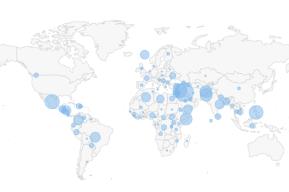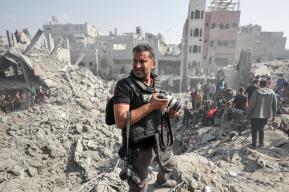News
Improving quality of secondary and higher education statistical data in Bosnia and Herzegovina

The International Standard Classification of Education (ISCED) is a framework for assembling, compiling and analysing cross-nationally comparable statistics on education. ISCED is a member of the United Nations International Family of Economic and Social Classifications and is the reference classification for organising education programmes and related qualifications by levels and fields of education.
In 2013, ISCED was revised for the second time, focusing on the fields of education and training (ISCED-F). The objective was to enable the assembly, compilation and analysis of cross-nationally comparable data in the fields of education and training of education programmes and qualifications. With this revision, the classification based on fields of study was extended to reach 3 different levels (broad, narrow and detailed field).
As part of the regular activities of the statistical institutions in Bosnia and Herzegovina and in accordance with their competences, the Agency for Statistics of Bosnia and Herzegovina (BHAS), the Federal Institute for Statistics (FIS) and the Republika Srpska Institute for Statistics (RSIS) launched the project “Improving the quality of secondary and higher education statistics data in relation to the International Standard Classification of the field of education ISCED-F 2013".
Statistical institutions in Bosnia and Herzegovina have been continuously devoted to improving statistics on education in order to have quality data. The focus of this activity was to enhance data on secondary and higher education in relation to the international Standard Classification of Fields of Education (ISCED-F 2013).
Gorana Knežević, Head of Department for social statistics, Agency for Statistics of Bosnia and Herzegovina
According to ISCED-F 2013, statistical institutions face certain challenges when collecting data and classifying programmes and areas of study for secondary and higher education. Specifically, they arise because each professional training and development and educational programme is classified into one of 11 broad, 29 narrow and about 80 detailed areas, complicating overview analysis. In addition, collected data must be coherent and consistent within all levels of government in Bosnia and Herzegovina, as well as internationally comparable.
Activities were carried out in close collaboration with the education authorities and secondary and higher education institutions on all levels of government. Their objective was to review current secondary and higher education statistics regarding education classification applications. The authorities were also charged with improving the quality of data required in relation to ISCED-F as well as the data required for domestic and international reporting (UIS, OECD, EUROSTAT).
Sinisa Sesum, Head of Antenna in Sarajevo, UNESCO Regional Bureau for Science and Culture in Europe







